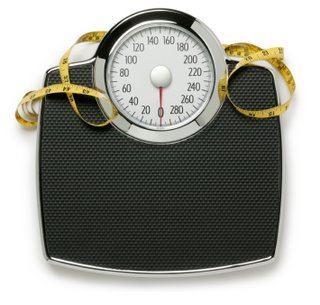Body weight is a determinant of health – if kept in check, it can keep a person healthy, and if it spirals out of control, it can lead to severe health problems and complications. For this reason, it is essential to monitor body weight carefully, and consult a doctor for regular check-ups. Keeping yourself informed about body weight is very important, and while there is a great deal of general information on the subject, there are also some facts that are not very well-known.
Body fat is directly linked to the thyroid
The thyroid gland is located in front of the trachea in the neck, and is directly linked to metabolism and body temperature. If you have an underactive thyroid gland, this means your metabolism will be slower, and you will not be able to lose weight quickly. However, if your thyroid gland is overactive, both your metabolism and appetite will be increased.
BMI can be useful at times
Short for Body Mass Index, BMI is a number that is calculated using a person’s height and weight. For some individuals, this can be useful as far as determining body fatness is concerned. While BMI can be used as a screening tool when it comes to researching possible weight problems in adults, it cannot be used as a diagnostic tool.
Some body fat can be healthy
The idea that all people who have a lot of body fat are unhealthy is a gross misconception. A thin person who does not exercise a lot will be unhealthier than a person who has a bit of extra body fat but exercises on a regular basis.
Even an average body weight can be harmful
While many assume that having an average body weight means a person is healthy, this is not always the case. You body weight includes any fat that your body contains, including intra-abdominal fat. Thus, you can have an average body weight, and still be unhealthy if a large proportion of this is intra-abdominal fat, which can harm the liver to a great extent.
Weight is a widespread problem
While overweight people often tend to feel isolated, and alone in their condition, weight is in fact a widespread problem, particularly in countries like the United States, where almost 9 million children between the ages of 6-19 are overweight, as are 64% of all adults.
Measurements of body weight can be misleading
BMI standards for body weight are not fixed, and tend to fluctuate – e.g. the BMI standards have increased a great deal over the past 30 years. This means that an individual who might have been considered fit 30 years ago can be considered overweight by today’s standards.
Lean body weight comprises everything except fat
Body weight is made up of two components – lean weight and fat weight. Lean weight comprises bones, muscles, water, ligaments, and tendons – in short, everything but fat. Lean weight needs to be retained, while fat weight needs to be reduced if you are looking to shed some pounds. Determine your lean to fat body weight ratio so you can have a clearer idea about your body and what it needs to stay healthy.





No Comment